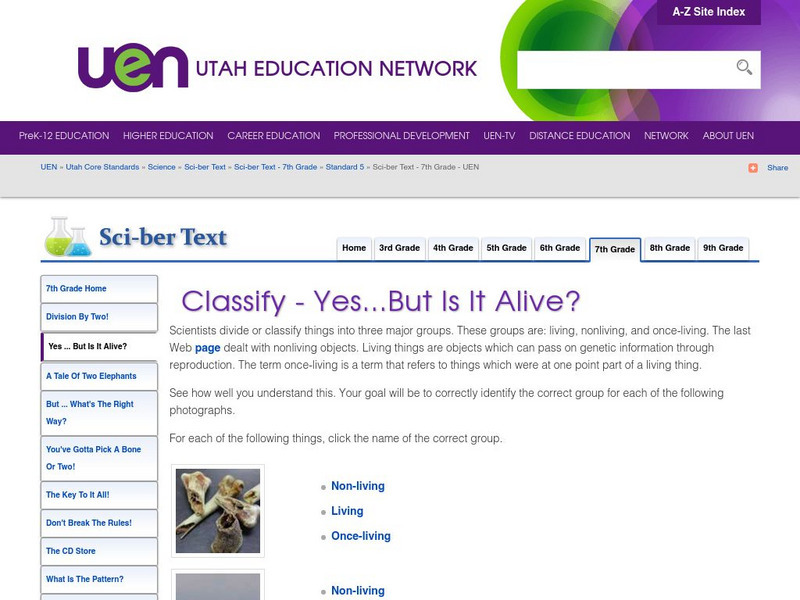Read Works
Read Works: Classify and Categorize 2nd Grade Unit
[Free Registration/Login Required] A series of three lesson plans designed to teach students to classify and categorize items, characters, and information. The third lesson plan is based on the book Splish! Splash! Animal Baths by April...
Read Works
Read Works: Classify and Categorize 4th Grade Unit
[Free Registration/Login Required] A three-activity unit on classifying and categorizing through which learners learn how to organize research into an outline, use text features to locate information, and write a research report. Lessons...
Read Works
Read Works: Classify and Categorize 1st Grade Unit
[Free Registration/Login Required] A three-lesson unit on classifying and categorizing through which students learn how to sort items into two and three categories and explain how each group is classified. Finally, students categorize...
Read Works
Read Works: Classify and Categorize 3rd Grade Unit
[Free Registration/Login Required] A three-instructional activity unit on classifying and categorizing through which students learn how to categorize information to answer research questions and then to organization that information into...
Science Education Resource Center at Carleton College
Serc: Investigating Biological Classification: Organization of All Living Things
All living things can be identified by their placement in a biological classification table. Learners will investigate the organization of all living things and learn how to classify through the process of classifying their own shoes....
Science Education Resource Center at Carleton College
Serc: Investigating Earth Materials: Collecting and Classifying
Activity investigates what Earth materials are made of. Students will go out and collect non-living earth materials that will fit in a small plastic bag then sort the material to discover ways of classifying what they have gathered....
Soft Schools
Soft Schools: Classification of Organisms Quiz
Take an interactive quiz over the classification of living things. After completing the quiz, check your score, and then revisit any incorrect question for further review.
Sophia Learning
Sophia: Classification Basics
This lesson will explain how and why scientists classify organisms.
Soft Schools
Soft Schools: Classification Quiz
Take this interactive, multiple-choice quiz over classification of organisms, then review your score and any missed questions at the end.
CK-12 Foundation
Ck 12: Episd: Animal Characteristics
[Free Registration/Login may be required to access all resource tools.] Students will be able to identify and classify organisms that are animals based on recognition of traits presented.
Indiana University
Indiana University Bloomington: Identifying 3 D Fossil Prints [Pdf]
In this lesson, students will identify three-dimensional (3-D) prints of common Indiana fossils to the kingdom, phylum, or class level. Students will observe and record the morphology of specimens and classify organisms based on their...
Utah Education Network
Uen: Classify Yes, but Is It Alive?
Do you know the traits something that is alive? Test your knowledge of the traits of life by identifying objects as alive, not living, or once alive.
Other
The Contemporary a Cappella Society: A Cappella Almanac
This website includes general information on a cappella music, as well has tips on how to get started in a cappella singing and how to arrange, perform, and record a cappella music. Read about world-wide a cappella events and check out...
ClassFlow
Class Flow: Thinking Maps the Tree Map
[Free Registration/Login Required] Teach your students to visualize the writing process using this graphic organizer as a tool.
CPALMS
Florida State University Cpalms: Florida Students: Diagramming Diversity I
Identify how living organisms are classified according to their evolutionary history. Recognize how a hierarchical classification scheme can be used to classify living organisms based on physical characteristics.
Alabama Learning Exchange
Alex: I Know What I Am, but What Are You?
During this instructional activity students will develop an understanding of how to classify living things and what creates the distinction among them. They will learn to classify living things by effects, environment, and activity.
Other
My Science Box: Is It Alive?
A lesson plan that introduces middle schoolers to the concept of classifying objects as either living or non-living. From this lesson, students begin to think about the necessary characteristics of life.
Discovery Education
Discovery Education: Animal Classification
Use this lesson to help students understand the reasons for classifications and ways that different species are separated.
ClassFlow
Class Flow: Animal Classification
[Free Registration/Login Required] Students will classify organisms into groups and relate how they determined the groups with how and why scientists use classification. They will also demonstrate how animals are sorted into groups...
Other
Contract Magazine
Magazine for commercial interior design and architecture. Provides pages of projects, articles about the business of design, links to organizations and publications.
Texas Education Agency
Texas Gateway: Taxonomy: Major Groups
Do you know that organisms are classified into different categories? This tutorial will show you how organisms are classified into three different groups called domains. Then see how those domains are broken down into kingdoms!
University of California
Ucmp: The World's Biomes
The University of California Museum of Paleontology hosts this site devoted to the study of the earth's biomes, which are the world's major communities, classified according to the predominant vegetation and adaptations of organisms to...
Sheppard Software
Sheppard Software: Parts of the Food Chain: Producers, Consumers, Decomposers
Learn how scientists classify different types of organisms in an ecosystem or in a food chain by their role and function as either a producer, a consumer, or a decomposer. Then play a game that tests your understanding of these important...
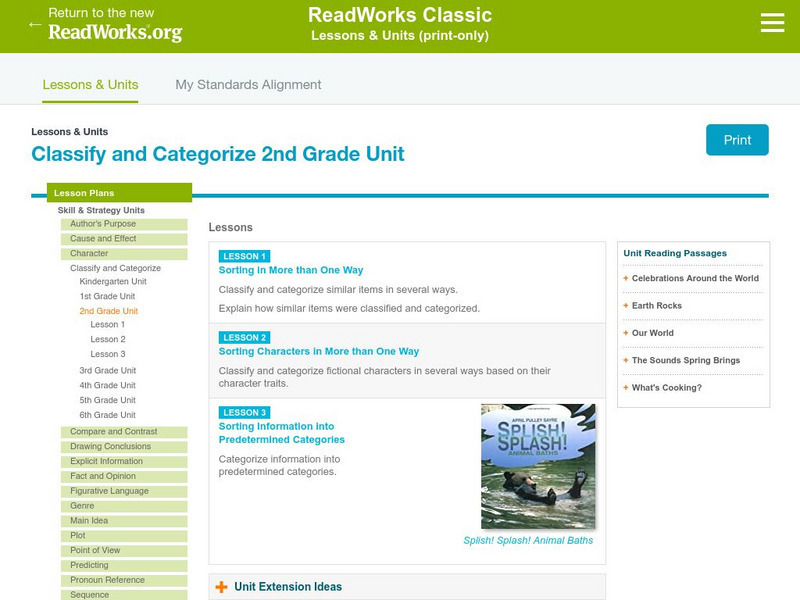

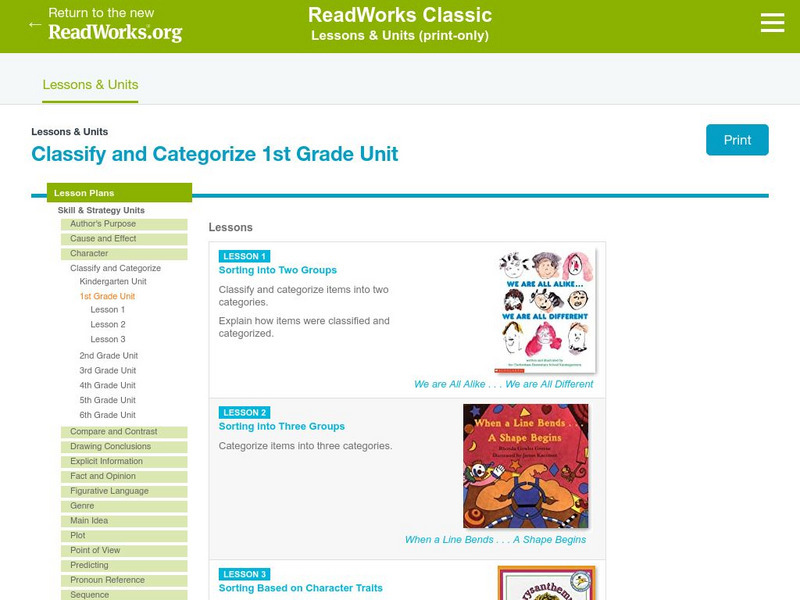
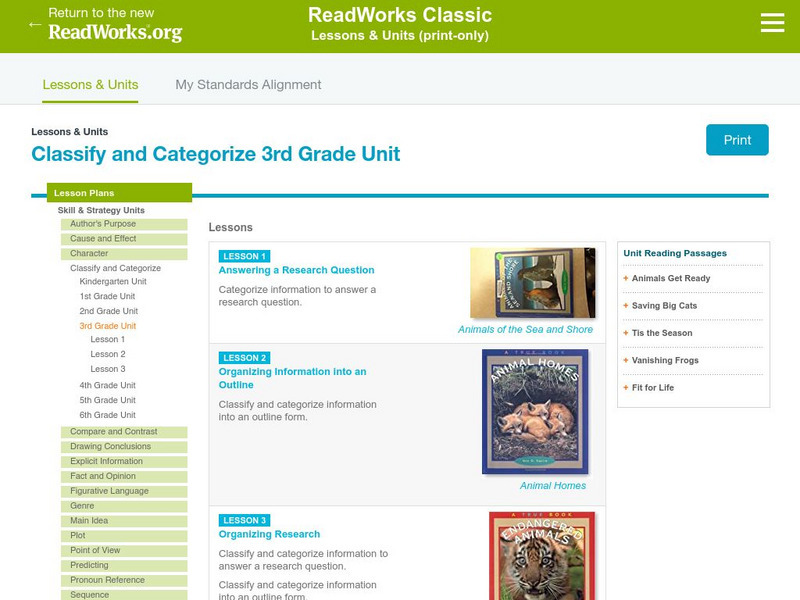
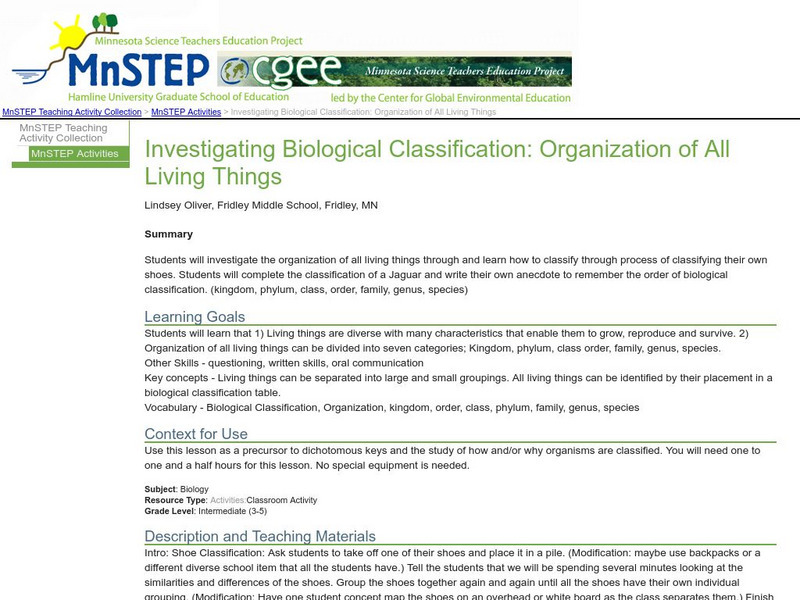


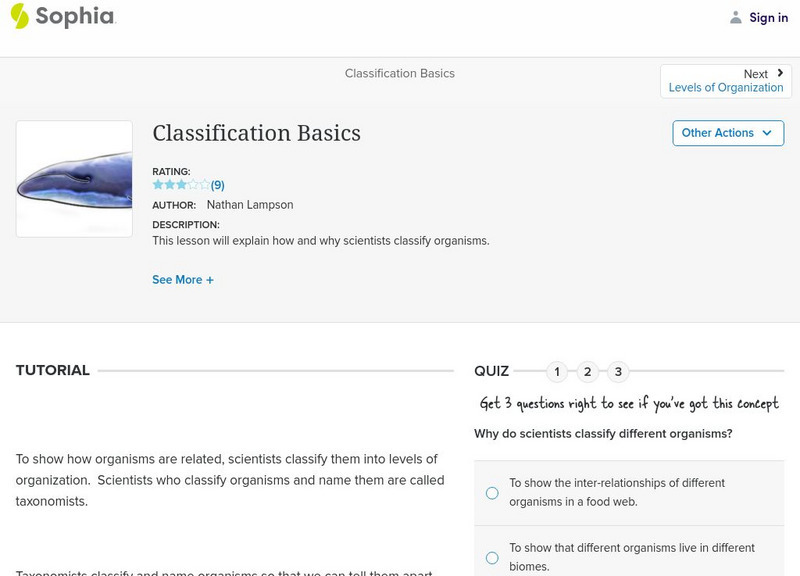



![Indiana University Bloomington: Identifying 3 D Fossil Prints [Pdf] Lesson Plan Indiana University Bloomington: Identifying 3 D Fossil Prints [Pdf] Lesson Plan](https://d15y2dacu3jp90.cloudfront.net/images/attachment_defaults/resource/large/FPO-knovation.png)
